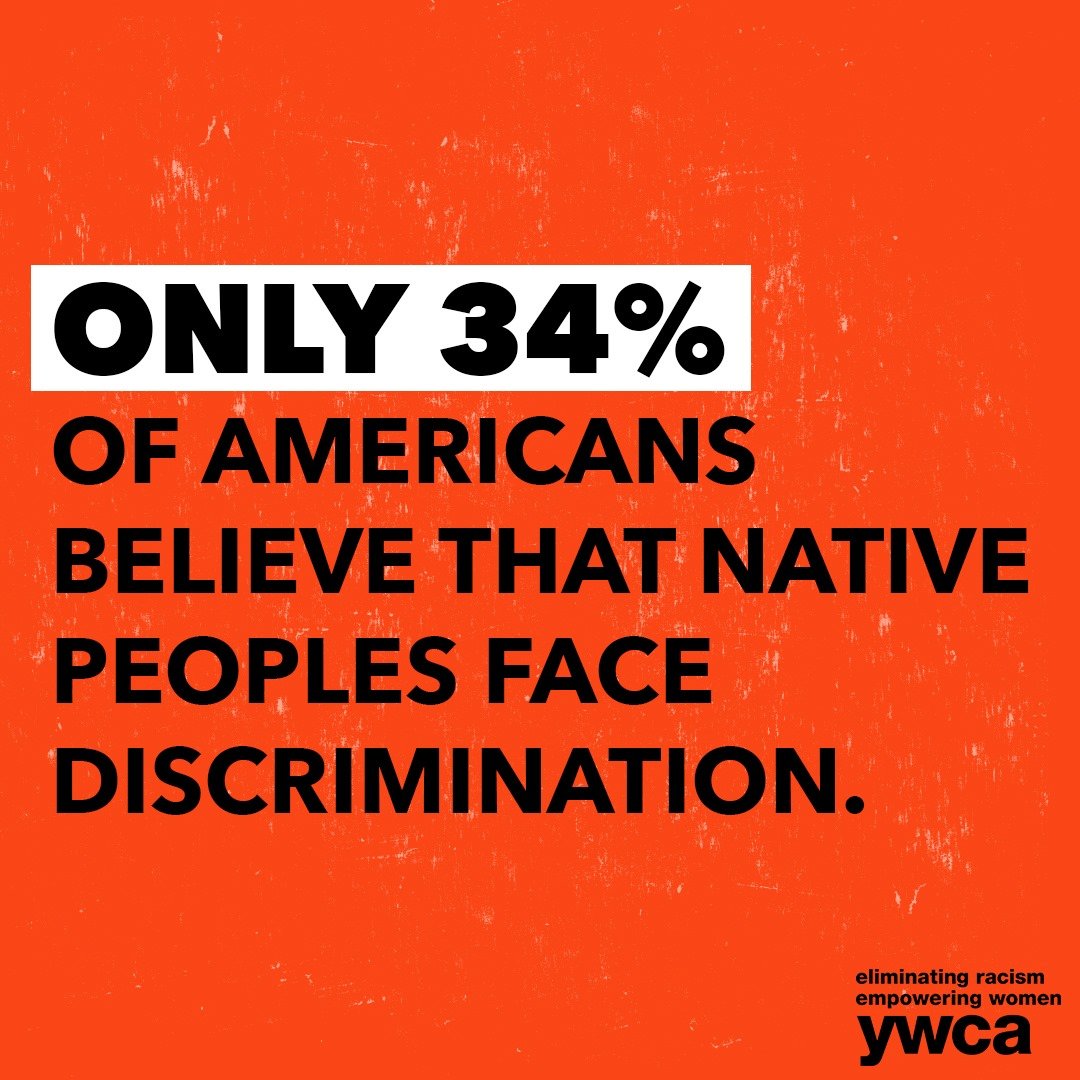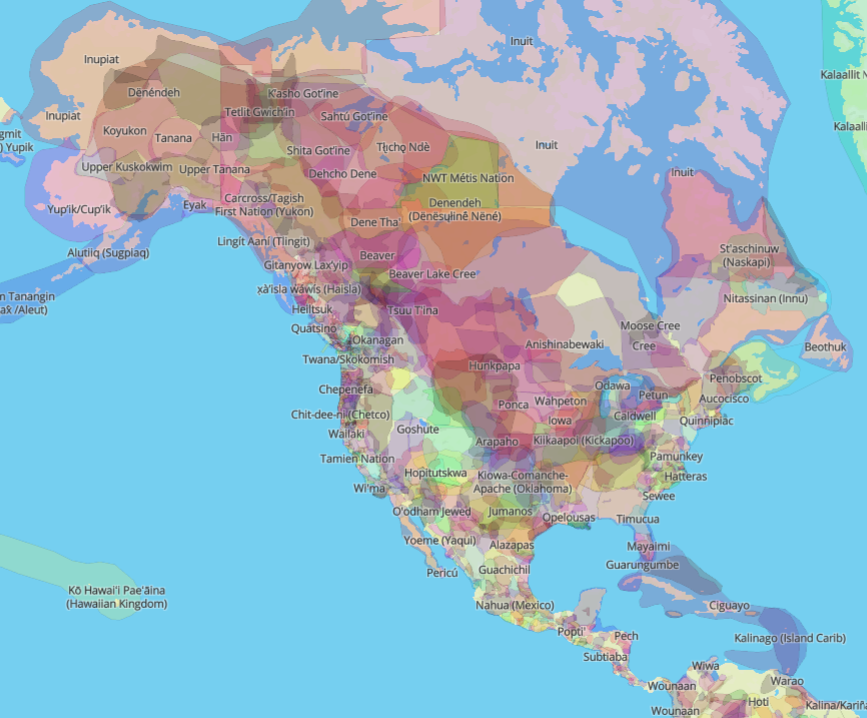Honoring Indigenous Peoples' Day: October 11, 2021
 Today is Indigenous Peoples’ Day, a holiday that honors the histories, cultures, contributions, and resilience of contemporary Native peoples in the face of historical and contemporary oppression. This holiday received extra attention this year because of President Biden's proclamation, the first U.S. president to issue such official recognition of Indigenous Peoples' Day (WIBW).Unfortunately, there is still great work to be done to recognize, honor, and celebrate the contributions of Indigenous people in our society. Today is still "Columbus Day" both at the federal level and many state and local regions. Many non-Indigenous people fail to understand the implications of celebrating a history that glorifies colonial violence perpetrated by Europeans against Indigenous people. But the every day reality is there: Indigenous men, women, children, and Two-Spirits face widespread issues and injustices of voter suppression, family separation, environmental devastation, sex and human trafficking, unaddressed epidemics of gender-based violence, police brutality and state violence.While only 34 percent of Americans believe that Native peoples face discrimination today as a result of the racist history of colonialization of this land (Report: Reclaiming Native Truth: A Project to Dispel America's Myths and Misconceptions), we at YWCA understand that there is so much more work left to be done to engage, educate, and empower our communities. Until the "land of the free" is brave enough to change, until justice just is.
Today is Indigenous Peoples’ Day, a holiday that honors the histories, cultures, contributions, and resilience of contemporary Native peoples in the face of historical and contemporary oppression. This holiday received extra attention this year because of President Biden's proclamation, the first U.S. president to issue such official recognition of Indigenous Peoples' Day (WIBW).Unfortunately, there is still great work to be done to recognize, honor, and celebrate the contributions of Indigenous people in our society. Today is still "Columbus Day" both at the federal level and many state and local regions. Many non-Indigenous people fail to understand the implications of celebrating a history that glorifies colonial violence perpetrated by Europeans against Indigenous people. But the every day reality is there: Indigenous men, women, children, and Two-Spirits face widespread issues and injustices of voter suppression, family separation, environmental devastation, sex and human trafficking, unaddressed epidemics of gender-based violence, police brutality and state violence.While only 34 percent of Americans believe that Native peoples face discrimination today as a result of the racist history of colonialization of this land (Report: Reclaiming Native Truth: A Project to Dispel America's Myths and Misconceptions), we at YWCA understand that there is so much more work left to be done to engage, educate, and empower our communities. Until the "land of the free" is brave enough to change, until justice just is.
Learn More, Take Action
- Read stories from Indigenous and Native People with this selection from the Topeka and Shawnee County Public Library.
- More Titles:
- As Long As Grass Grows: The Indigenous Fight for Environmental Justice, from Colonization to Standing Rock by Gilio-Whitaker (This was the June 2021 pick for YWCA's Racial Justice Book Club)
-
Braiding Sweetgrass: Indigenous Wisdom, Scientific Knowledge and the Teachings of Plants, by Robin Wall Kimmerer
-
An Indigenous Peoples' History of the United States: Revisioning American History, by Roxanne Dunbar-Ortiz
- The Heartbeat of Wounded Knee, by David Treuer
- Support Local Indigenous Businesses with this crowdsourced post from “The Topeka Experience” Facebook group.

- Article: "Goodbye, Columbus? Here's what Indigenous Peoples' Day means to Native Americans" (NPR)
- Article: "Rethinking How We Celebrate American History—Indigenous Peoples’ Day" (Smithsonian Magazine)
- United Nations: "Leaving no one behind: Indigenous peoples and the call for a new social contract" (International Day of the World's Indigenous Peoples 9 August)
- Use the maps tool from Indigenous-led nonprofit Canadian Land Digital to view the history of tribal homes on the land we live and work today.
Murdered and Missing Indigenous Women and Girls
Violence against Native people is a crisis, especially for women. This Domestic Violence Awareness Month, we must highlight the crisis of #MMIW. From the Association on American Indian Affairs:
- American Indians and Alaska Natives are 2.5 times as likely to experience violent crimes and at least 2 times more likely to experience rape or sexual assault crimes compared to all other races.
- More than 4 in 5 American Indian and Alaska Native women, or 84.3 percent, have experienced violence in their lifetime.
- Homicide is the third leading cause of death among American Indian and Alaska Native women between 10 and 24 years of age and the fifth leading cause of death for American Indian and Alaska Native women between 25 and 34 years of age.
- In 2017, the top three cities with the highest number of MMIWG cases were Seattle, WA (45); Albuquerque, NM (37); and Anchorage, AK (31). The top three states were New Mexico, Washington, and Arizona.
- In the U.S. and Canada, an average of 40 percent of the women who were victims of sex trafficking identified as American Indian or Alaskan Native.
 This Indigenous People's Day, we must all commit to standing in solidarity with Indigenous people every day and fight against the very real, urgent injustices and issues facing communities at home and around the world. We must all acknowledge and take accountability for the generations of oppression, ignorance, and violence that have been committed against Indigenous communities and their autonomy, lands, and freedom.As an organization dedicated to eliminating racism and empowering women, we at YWCA Northeast Kansas know that our work to support women, survivors, and families across our community must center women of color, including Native and Indigenous women, who are disproportionately impacted by gender-based violence and state violence, but often left out of media and policy narratives, because Indigenous rights are women’s rights are human rights.We must end violence against Indigenous Women. The Center for Safety and Empowerment provides FREE and CONFIDENTIAL services to victims of domestic and sexual violence, stalking, and human trafficking in Shawnee, Jackson, Brown, and Wabaunsee Counties in Kansas. Advocates are available through our free and confidential helpline 24 hours a day, 7 days a week over the phone: 1-888-822-2983.
This Indigenous People's Day, we must all commit to standing in solidarity with Indigenous people every day and fight against the very real, urgent injustices and issues facing communities at home and around the world. We must all acknowledge and take accountability for the generations of oppression, ignorance, and violence that have been committed against Indigenous communities and their autonomy, lands, and freedom.As an organization dedicated to eliminating racism and empowering women, we at YWCA Northeast Kansas know that our work to support women, survivors, and families across our community must center women of color, including Native and Indigenous women, who are disproportionately impacted by gender-based violence and state violence, but often left out of media and policy narratives, because Indigenous rights are women’s rights are human rights.We must end violence against Indigenous Women. The Center for Safety and Empowerment provides FREE and CONFIDENTIAL services to victims of domestic and sexual violence, stalking, and human trafficking in Shawnee, Jackson, Brown, and Wabaunsee Counties in Kansas. Advocates are available through our free and confidential helpline 24 hours a day, 7 days a week over the phone: 1-888-822-2983.
